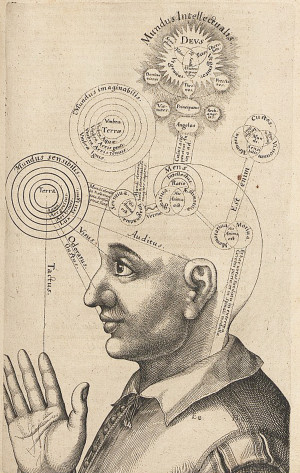Article by David Rosales, 4th installment of a 7 part series.
When it comes to making music, people in general (including both audience and artists) tend to sum things up in “feeling”, or ways of looking at the world. That is all well, but it does not necessarily imply the way in which music is made, nor if this “feeling” of theirs reveals any worthwhile quality. What’s even more problematic is that although everybody may deduce from common sense that music operates at two primary areas, namely form and intuition, it is assumed that these are disconnected and that whatever the original feeling that produced them, the audience is free to interpret whatever they want from it, since music is completely free and completely subjective.
Be that as it may, the truth is that intention-feeling-intuition and the musical form that is produced by the artist are intertwined in a complex relationship. Most composers would describe their creation process as one in which they jump between abstract and concrete modes. The beauty of music is that there is no one-to-one relation between conscious thought and organically produced result, but there is, indeed, a causal relation that can be traced and generally pointed at with some experience and powers of observation.
We may start by defining two modes of creation, one in which the exterior, that is, the form, the sound, the pitch, etc.generates an idea, perhaps at the same level, or inciting a thought. This mode is akin to what the audience goes through when they listen to the music. The second one is one in which an idea, a thought or a general feeling moves the artist to find a chord, a sound, a texture or a structure that corresponds to what he is looking for to some degree (depending on talent, availability of resources, etc). While we can safely say that most creators will invariably switch between these two modes, the importance and weight they assign to each varies. This very way in which they think is crucial to the nature and character of the result.
This must not be confused with the methods of composition such as improvisation and strict arrangement, which are also usually used in combination by composers throughout the creation process at some level or another. Generally speaking, though, careless composers tend to improvise much more than arrange strictly, and superficial ones tend to follow an outside-to-inside stimulation predominantly, allowing the raw impressions of the music to guide it.
Those who err on the side of caution keep improvisation on a short leash and brainstorming carefully directed and observed, channeling it and augmenting it through strict composition. On a parallel line, the composer who follows an inside-to-outside thought process keeps the externalization of a consistent logic line in check so that they make sense as much as words, statements and sections in an essay do. It is no mystery both kinds of arrangements, verbal/written and musical, are called compositions.
“Good simplicity, not that euphemism for folly”
Tags: analysis, Classical, classical music, music analysis, pop metal, pop music



I like SOME pop music.
When I discover any deeper meanings, such as promoting bestiality or the NWO,
then, yeah, I get ticked off, and thankful never purchased it.
THERE used to be a place for “pop metal” but what unsure what that is these days, cuz it ain’t Ozzy / Def leppard – type anymore
Theres nothing wrong with good ol’ man – beast lovin’ you faglord.
Why do Jews tend to make better musicians than composers? Is it biological or cultural? Mendelssohn & Mahler are exceptions (of sorts), but watch symphonies on YouTube and you’ll often see a Jew play flawless.
Pass the pipe, pass the time, spin the dreidel
Richard Wagner made the same observation.
His hypothesis / belief was that jews could not describe the “European spirit”, and therefore not make good music for Europeans.
I am a bit of an ignoramus on this subject. I don’t know any jewish music so I can’t comment on it. But I do find it interesting, as I have a healthy interest in population genetics and memetic and cultural evolution.
I was always under the assumption that American Jews were heavy into jazz. Possibly stemming from a higher percentage of wealth (anything worse than a rich guy who likes jazz?), or a fierce need to be identified as American in the pre WWII days. This could be an old fashioned idea though.
Jews make rap now, albeit more coherent than the originators.
I find this hard to believe, lol. Every demographic makes rap these days, with Americans of African descent doing it the most. Why would jews be over represented in rap?
Appreciated the way you distinguished the two modes of creation from the “how” of composing.
Where are the others